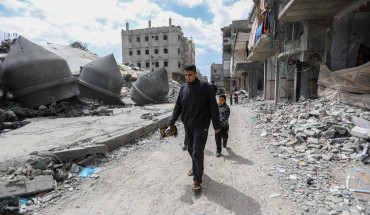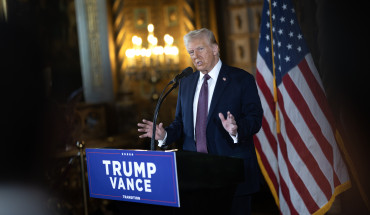Turkey began 2018 embroiled in domestic dissent and diplomatic friction. Last April's constitutional referendum was met with widespread criticism as an attempt by President Erdogan to consolidate power. Activists and journalists face increasing restrictions on their rights, the government continues its crackdown on the opposition, and debates swirl over the future of Turkey's economy, the Kurdish question, and relations with the United States and European Union. This weekend's three-day offensive into Northern Syria has created a new battleground in the Syrian War, inviting conflict with the United States. These various issues are coming to a head in advance of 2019's presidential election.
What is the opposition's strategy to challenge Erdogan and how is he anticipated to respond? If Turkey's economy worsens, will he call for early elections to improve his chances of victory? And what will be the implications of Erdogan's 2019 strategy for the country's foreign policy?
The Middle East Institute (MEI) convened a panel of experts to examine these key issues and more, featuring Soner Captagay (WINEP), Howard Eissenstat (St. Lawrence University), and Max Hoffman (CAP). MEI’s director for Turkish Studies, Gönül Tol, moderated the discussion.
Speaker Biographies:
Soner Cagaptay
Beyer Family fellow and director of the Turkish Research Program, Washington Institute for Near East Policy (WINEP)
Soner Cagaptay is the Beyer Family fellow and director of the Turkish Research Program at WINEP. He has written extensively on U.S.-Turkish relations, Turkish domestic politics, and Turkish nationalism, publishing in scholarly journals and major international print media, including the Wall Street Journal, The Washington Post, The New York Times, Jane's Defense Weekly, Foreign Affairs, The Atlantic, The New Republic, and Newsweek Türkiye. He has been a regular columnist for Hürriyet Daily News, Turkey's oldest and most influential English-language paper, and a contributor to CNN's Global Public Square blog. He appears regularly on Fox News, CNN, NPR, Voice of America, BBC, and CNN-Turk. He has also served on contract as chair of the Turkey Advanced Area Studies Program at the State Department's Foreign Service Institute.
Howard Eissenstat
Associate professor of Middle East History, St. Lawrence University
Nonresident senior fellow, Project on Middle East Democracy (POMED)
Howard Eissenstat is a nonresident senior fellow at POMED and associate professor of Middle East history at St. Lawrence University. Eissenstat writes on twentieth-century Turkish history as well as on the country’s contemporary politics and foreign policy. He served for over a decade as a Turkey country specialist for Amnesty International USA. Eissenstat has lectured at the Foreign Service Institute of the U.S. Department of State and the Canadian Foreign Service Institute. Eissenstat received his PhD in Modern Middle East History from UCLA in 2007 and was a post-doctoral fellow at the Crown Center for Middle East Studies at Brandeis University in 2008-2009. His most recent work is a brief for POMED, “Uneasy Rests the Crown: Erdogan and ‘Revolutionary Security’ in Turkey.”
Max Hoffman
Associate director of National Security and International Policy, Center for American Progress
Max Hoffman is the associate director of National Security and International Policy at American Progress, focusing on Turkey and the Kurdish regions. He travels frequently to Turkey and the region. Prior to joining American Progress, Hoffman worked on security issues for the United Nations and for the U.S. House of Representatives Armed Services Committee, and worked in public affairs in Boston. Hoffman has an M.A. in history from the University of Edinburgh, where he won the Compton Prize for American History.
Gönül Tol, moderator
Director for Turkish Studies, MEI
Gönül Tol founded the Turkish studies program at MEI and is an adjunct professor at George Washington University’s Institute for Middle East Studies. She was previously an adjunct professor at the College of International Security Affairs at the National Defense University. She has taught courses on Islamist movements in Western Europe, Turkey, world politics, and the Middle East. Her three years of field research in Germany and the Netherlands led to her dissertation on the radicalization of the Turkish Islamist movement Millî Görüş in Western Europe. She has written extensively on Turkey-U.S. relations, Turkish domestic politics, and foreign policy and the Kurdish issue, and she is a frequent media commentator.












